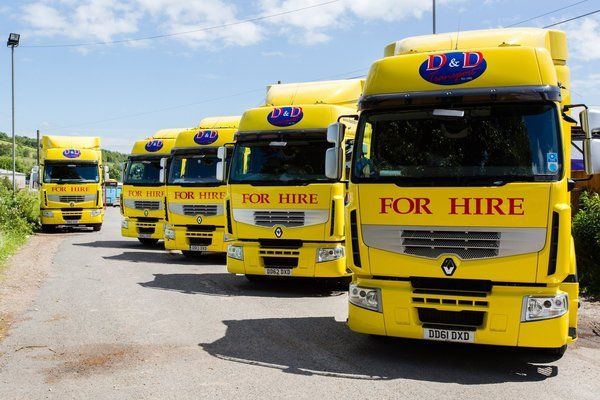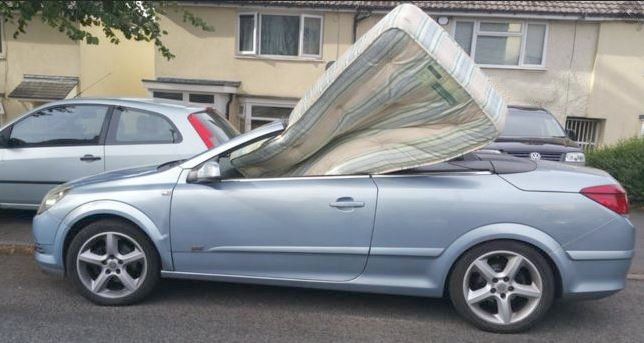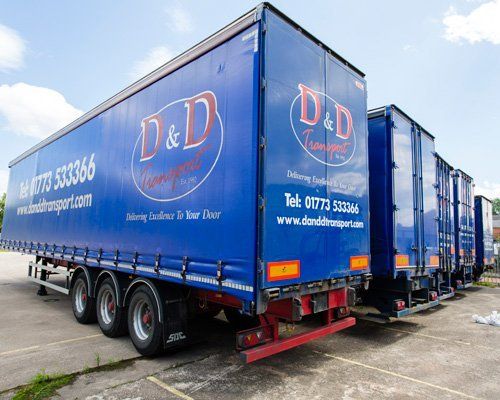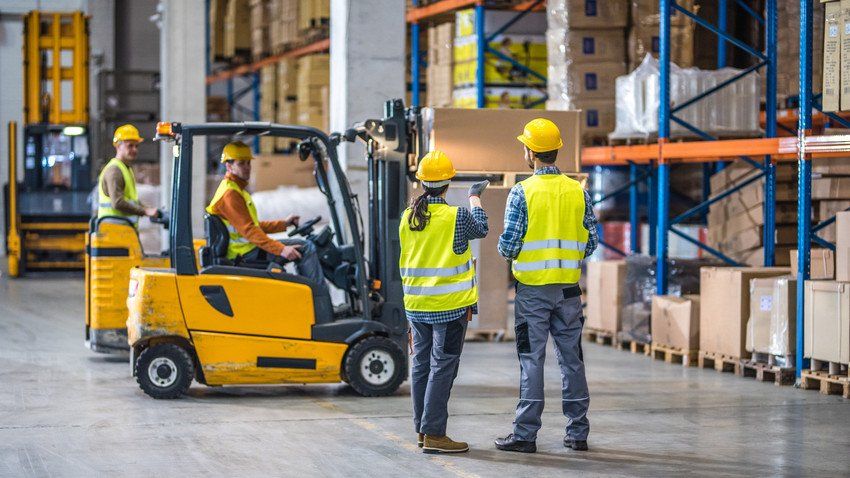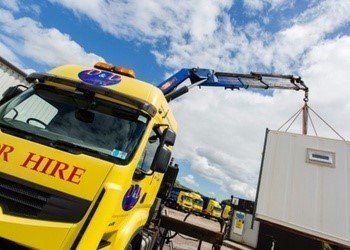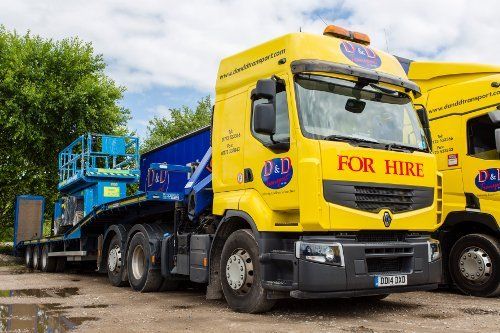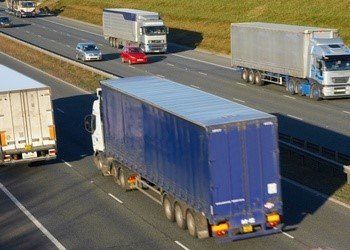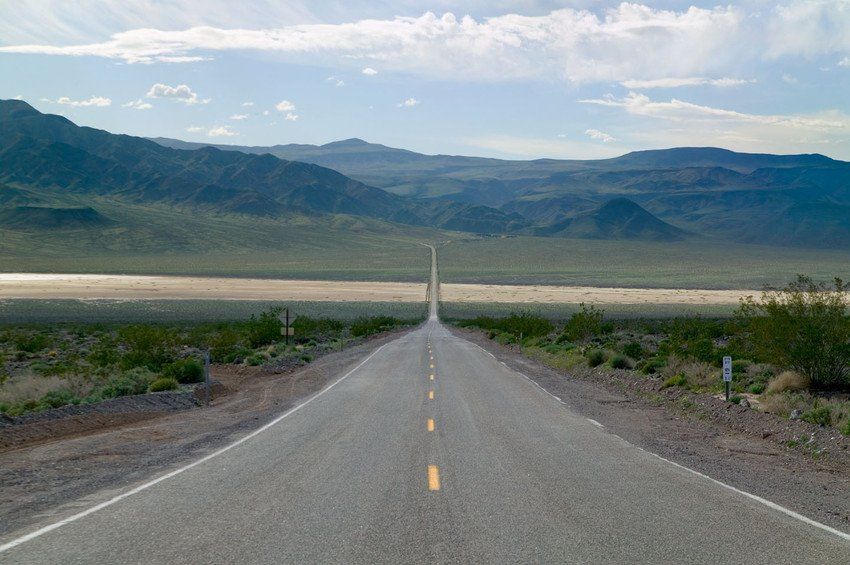Five Ways Freight Forwarders Can Be More Environmentally Friendly
- By D & D transport
- •
- 27 Sep, 2019
- •
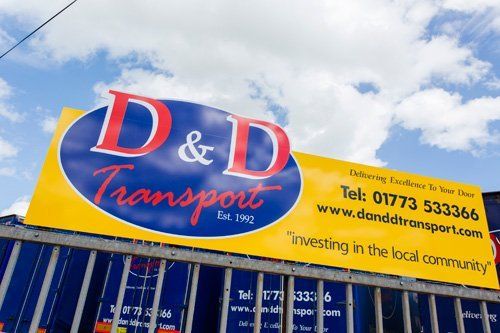
Freight forwarding is a crucial aspect of international trade and with emerging markets, technologies, manufacturing methods, materials, information channels and trade policies, commerce is becoming increasingly global. As a result, it’s even more important to ensure that the logistics of global commerce run smoothly.
However, a knock-on effect of living in an increasingly global society is a heightened awareness of the environmental impact that we’re having on our planet. More than ever before, we need to be working together to ensure we maintain and treasure our environment for future generations.
The haulage industry is a key player in both of these pressing global issues and subsequently, has become a focus area for ensuring that both problems can be solved as one. In this blog, we list five ways freight forwarders can be more environmentally friendly, without compromising the efficiency of business operations.
In the UK, the transport sector is the most polluting industry, with cars, trucks and lorries releasing the majority of carbon emissions into the Earth’s atmosphere. The answer to this isn’t to take vehicles off the road entirely, but to ensure that only the necessary number of vehicles are on the road at one time.
With this in mind, haulage companies must take responsibility by optimising the space inside their vehicles. A team of haulage specialists must not only be excellent drivers, but also have unparalleled packing skills, treating their vans like a game of tetris and ensuring that there’s no wasted space. For haulage business owners, this means training your staff proficiently so that they think logistically, take their time and maximise the space available.
Yet, you still need to bear in mind that transporting heavier loads will guzzle up more fuel. Whilst haulage teams need to utilise space-efficient packing, they shouldn’t overpack their vehicles either, as this will limit the driver’s ability to drive fuel-efficiently. It’s about finding a balance between the two - but remember, on the whole, it’s always better to have one large heavy goods vehicle on the road rather than multiple light load trucks.
Know the most efficient travel routes
It goes without saying that haulage drivers need to have an in-depth knowledge of the route they’re taking; if you get lost, you’re going to use up more fuel trying to get back on track. However, planning travel routes isn’t just about not getting lost - it’s also an important way to encourage fuel-efficient driving.
Whether you’re driving a small three-door car or a 44-tonne artic lorry, it’s widely understood that driving a long distance on a motorway is going to be less harmful to the environment than taking A-roads and country lanes. On a motorway, there’s less stopping and starting, less idling and a consistent speed - particularly if you use cruise control, which offers up to 15% better mileage. So, planning your routes to incorporate as much motorway driving as possible is simply common sense for haulage companies.
However, you will need to check the Highway Code to make sure you’re aware of the appropriate speed limits, as these vary for larger vehicles. For example, in England and Wales, the maximum motorway speed for goods vehicles exceeding 7.5 tonnes is 60mph, whilst for smaller cars and trucks, it’s 70mph.
What’s more, international haulage companies won’t just be driving on UK roads. Drivers could be working elsewhere in Europe or even further afield, in which case, all drivers must be fully briefed on the relevant driving rules to not only improve safety, but also to drive more efficiently.
This also means driving on the fastest routes at a time when traffic will be at a minimum in order to reduce the chance of idling and stopping and starting in queues - hence why so many HGVs drive overnight. Remember, it makes good business sense too; your clients will receive their goods without delay.
Fuel-efficient driving training for freight forwarding companies
Along with meticulously planning travel routes, freight forwarders must also make sure that their driving techniques are eco-friendly and fuel-efficient. Any company that utilises lots of vehicles as part of their daily operations must be responsible for maintaining environmentally-friendly standards, and whilst all industries are striving to develop sustainable techniques, it’s arguably more critical for companies that employ carbon emission-producing machinery.
You may be thinking, “but vehicles are being manufactured to operate more efficiently, why do we need to change how we drive?”. Well, despite developing automotive technology, a disparity remains between how efficient a vehicle should be and how efficient it actually is - and this is because drivers aren’t optimising the new technology.
Freight forwarding companies should train their drivers in ‘eco-driving’, taking on fuel-efficient driving techniques and maintaining them amongst the entire fleet. Not only will this make the industry more eco-friendly, but it also saves money through reduced fuel usage and makes the roads safer, as there’s a strong emphasis on anticipation in eco-driving. Here are just a few of the tips for driving green:
● Avoid idling.
● Drive smoothly.
● Step off the accelerator.
● Shift up gear early.
● Avoid excessive speed.
● Cut back on air conditioning.
● Reduce drag.
● Avoid unnecessary weight.
● Maintain your vehicles.
For more information, the Energy Saving Trust has a detailed guide to fuel-efficient driving.
Cut out air travel for international freight forwarders
Outside of the way in which freight forwarders operate day to day, it’s also important that the whole industry takes an environmentally-friendly stance. One way in which this is already happening is limiting the use of air freight due to its catastrophic impact on the environment.
Recently, individuals and businesses across the planet have started to wake up to the drastic effects that the aviation industry has on the health of our planet. Every single flight swallows up thousands of kilos of fuel, contributing to tonnes of carbon dioxide seeping into the atmosphere. In fact, one air mile produces about 25kg of CO2, so a flight between London and New York will produce around 93,500kg of harmful CO2.
This is a stark and shocking reality that both commercial and industrial aviation businesses must face up to. If we continue to use air freight services at the rate we are, the amount of carbon dioxide that will permeate our planet’s atmosphere is unthinkable. Yet, this exorbitance could be easily avoided by simply minimising air freight and optimising alternative transportation methods.
When transporting goods on land, utilising vehicles is, of course, the only option. However, when it comes to forwarding goods overseas, shipping freight is by far the most sustainable method. Haulage companies should be adjusting their routes to favour shipping over air freight, whilst ensuring that journeys on land are as efficient as possible.
It’s not just the companies themselves that can have an impact - effective government policies can also make a difference. For instance, the European Union is putting means in place which will ensure that all of the main ports of the European regions are connected by Motorways of the Sea by 2020. This will alleviate major roads, reduce costs and transit times and most importantly, minimise pollution.
Government policy, technological advancement and changing individuals’ behaviour is all about looking forwards and cultivating a more sustainable society for many years to come. For freight forwarders, looking to the future is the most important way to ensure that operations are increasingly eco-friendly and protective of the planet.
Like all industries, the haulage industry must be innovative, keeping up to date with the latest advancements in automotive technology and working out how to optimise new, green solutions. But what are the latest changes? What should freight companies be researching and investing in over the next few years?
Firstly, automotive industry leaders Hyundai and Toyota are adamant that hydrogen-fuelled vehicles are the answer to eco-friendly driving. Hydrogen is the most abundant substance in the universe, so carmakers have been experimenting by compressing and storing it in a liquid tank, with water as the only emission. Fuel cells then convert the hydrogen into electric energy, powering vehicles and entirely eliminating their carbon footprint. In terms of hydrogen fuel for HGVs and trucks, the Nikola Motor Company in the US is leading the way, planning to launch its first fleet of hydrogen-powered fleets in 2021.
Hydrogen power is one of two popular environmentally-friendly alternatives to traditional diesel power - the second is electric-powered vehicles (EVs). Electric cars are becoming commonplace amongst domestic drivers, with more than 227,000 sold in the UK between 2013 and 2019. However, despite concerns about distance and battery life, the electric revolution is beginning to infiltrate the heavy goods industry too.
Mercedes-Benz has an all-electric truck with a 150km range, designed for urban courier and transportation services. In the world of HGVs, DAF Trucks - a Dutch truck manufacturing company - has launched its first electric lorry which can deliver within a 50km radius without charging. Unfortunately, the sheer weight of heavy goods vehicles means that utilising electric power for long distances still has some way to go.
Yet, Tesla, the biggest name in EV technology, has since developed the Semi, an all-electric HGV with a 500 mile range and a 40 tonne maximum tow limit - all on a single charge! So perhaps zero emission heavy haulage is on the horizon after all...
D&D Transport: Professional freight carriers and haulage experts in Nottingham
Here at D&D Transport, we’re committed to minimising our impact on the environment whilst also delivering excellence, right to your door. With over 25 years experience in transporting goods locally, regionally and internationally, our tailored haulage, freight and cargo solutions know no bounds. Our team of fully qualified professionals work around the clock, all year long to ensure that our clients’ distribution and transportation needs are met.
To request a freight quote, please don’t hesitate to get in touch with our friendly and professional team today. We’ll ensure that your business logistics are handled efficiently, safely and in an eco-friendly manner.
